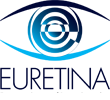Neurotech Pharmaceutics, Inc., a private clinical stage biotech company based in Cumberland, Rhode Island, US, has announcedthat the Food and Drug Administration (FDA) has approved revakinagene taroretcel-lwey (“Encelto”, originally termed “NT-501”) for the treatment of Macular Telangiectasia type 2 (MacTel). According to the company, Encelto is the first and only FDA-approved Treatment for MacTel. The technology utilises an encapsulated cell therapy (ECT) treatment designed to continually deliver therapeutic doses of ciliary neurotrophic factor (CNTF) to the retina to assist in slowing the progression of the disease. Neurotech’s ECT platform is a cell-based gene therapy delivery system designed to provide long-term, sustained delivery of therapeutic proteins for the treatment of chronic eye diseases. The company stated that the, “platform consists of a small, semi-permeable capsule that is surgically implanted, containing proprietary allogeneic retinal pigment epithelium (RPE) cells genetically engineered to produce specific therapeutic proteins for targeted disease treatment.”
Macular Telangiectasia (“MacTel”), also known as idiopathic juxtafoveal macular telangiectasia, is a rare disorder of the retinal vasculature causing localized retinal degeneration. Type 2 is understood to be one of the most common types of 3 classifications of MacTel affecting an estimated 1 in 22,000 individuals. Most patients diagnosed in their 40s and 50s show that the disorder typically affects in both eyes and may slowly lose central vision over a period of up to 2 decades.
Neurotech reported that revakinagene taroretcel (Encelto / NT-501) was evaluated in two phase 3 clinical trials ( see protocol A, NCT03316300 and protocol B, NCT03319849), reported in November 2022. According to the sponsor, the randomized, sham-controlled, multi-center studies were primarily assessing the rate of change in ellipsoid zone area loss, which correlates to photoreceptor loss, from baseline through 24 months, as well as the safety of the implant and procedure. It was found that the protocol A trial had a 56.4% rate of reduction (P <.0001) in treated patients and protocol B had a 29.2% rate of reduction (P = .021).
Neurotech Pharmaceuticals Inc: The company showed their robust device design and attention to manufacturing quality used encapsulated technology from a proprietary cell line allowing a slow loss of visual photoreceptors in macular telangiectasia. The artificial implant, the size smaller than the tip of a pencil, consist of cells that have been genetically modified to produce a specific therapeutic protein (CNTF) and are encapsulated in a semi-permeable hollow fibre membrane. The cells continuously produce the therapeutic protein which diffuses out of the implant at the target site. Bypassing the blood-retina barrier is one of the significant advantages of the device.
Following the announcement of the approval by the FDA, Richard Small, CEO of Neurotech Pharmaceuticals, stated, “today marks an extraordinary milestone for patients, the retina community, and Neurotech. I would like to express my gratitude to clinical study participants, clinical investigators and their teams, and the entire Neurotech organization who have helped make this a reality.” In addition, Charles C Wykoff, MD, PhD, a member of the medical advisory board in Neurotech commented that, “I have seen the impact that MacTel can have on patients and their quality of life. Now with an FDA approved treatment, I am confident that Encelto will be able to meaningfully slow disease progression for many patients affected by MacTel, allowing them the opportunity to preserve more functional vision over time.”
